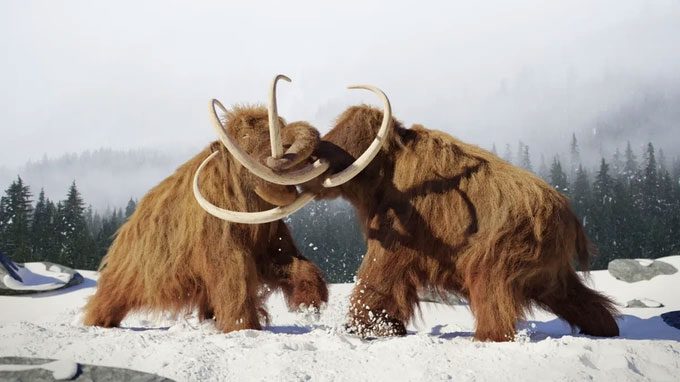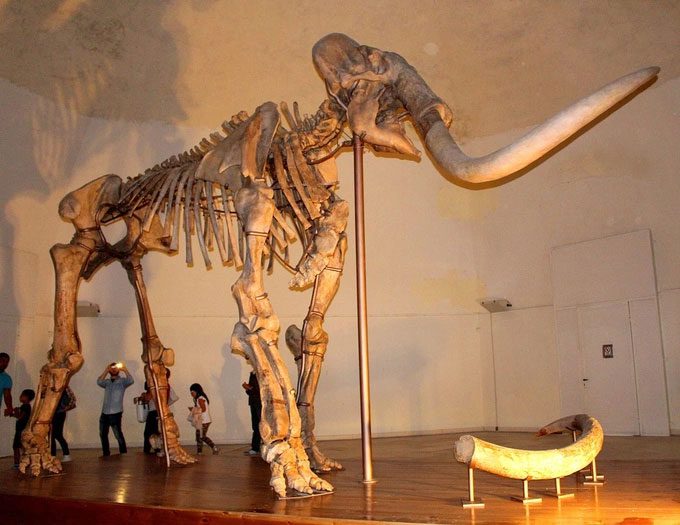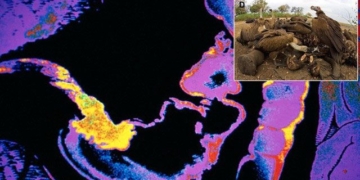This technology is not only for extinct species. It may represent a significant scientific breakthrough.
Reviving the Woolly Mammoth

Woolly mammoths are set to be revived by scientists, creating their own population on Earth. (Photo: Shutterstock).
The world is edging closer to a climate disaster as humans continue to destroy habitats, leading to ocean pollution and greenhouse gas emissions in the atmosphere.
The consequence of this is that animal species are facing extinction at an alarming rate.
Fortunately, on the flip side, scientists are making efforts with a method known as “de-extinction”, exemplified by the cloning of ancient DNA, aiming to “revive” species that have previously vanished.
Recently, the Central Intelligence Agency (CIA) expressed great enthusiasm for this idea. In its investment portfolio, the CIA, along with other prominent investors, has funded a project to revive the woolly mammoth (Mammuthus primigenius) through a company called Colossal Biosciences.
According to Colossal, while the final technical outcome will not be a “living, breathing” woolly mammoth, they will create a DNA replica based on CRISPR gene editing of this species, taking the form of a modern elephant, specifically the Asian elephant.
This elephant will then be nurtured, returned to the wild, and take the initial steps in the process of “reviving” the bygone era of woolly mammoths on Earth.
What Does the CIA Want from This Project?

A complete woolly mammoth skeleton displayed at the National Museum of Abruzzo, Italy (Photo: Getty).
In a detailed commentary published on its blog, the CIA asserted that the investment in the project aims to see more of what technology can achieve.
“The government wants to observe and pay attention to the latest advancements in biotechnology, as the revival of an extinct species would mark a technological leap, spanning from conservation to medicine“, the CIA stated.
However, not all scientists agree with the idea of re-establishing extinct species.
They argue that such technologies could “reshape ecosystems” by reestablishing the order of organisms, potentially leading to disputes between nations in the future.
Countering this viewpoint, Ben Lamm, co-founder of Colossal, affirmed that biotechnology—or bioeconomics—is a crucial factor for humanity’s further development.
“All aspects of life require government investment for development, so that they can ultimately understand and estimate what might happen,” he said.

















































